Boston Tree Surgeons (PE21): There are many advantages to having trees in your garden in Boston, and aside from the aesthetic rewards, trees produce oxygen, spread seeds from which more trees will sprout, help the environment and provide a home for wildlife. Trees are great for kids as well, making an ideal place to play and climb, and with bigger trees even build tree houses. Under the appropriate circumstances this is well and good, however trees can cause challenges and turn out to be more hassle than they are worth in certain scenarios.
When you're facing one of these problems, it is likely that you'll be looking for assistance from an expert. Your local Boston tree surgeon is the individual to call whether you wish to have some stumps ground down, some overgrown branches trimmed or a complete tree felled. To help with enhancing and maintaining a beautifully landscaped garden, a seasoned tree surgeon in Boston will be able to offer an array of services. Because there are hazards associated with poorly maintained trees, they need to be cared for and monitored in an efficient and professional manner.
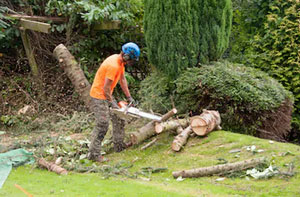
While a keen Boston gardener can safely undertake lots of horticultural jobs, the process of tree removal should definitely be left to the experts. Using the professional services of a tree surgeon in Boston means that a tree will be safely and skilfully removed. Listed here are just some of the key benefits of using a certified Boston tree surgeon:
Safety - Larger trees can be very heavy and unpredictable, and it can be particularly tricky to have complete control over the felling process. As there's the possibility of significant damage if a tree fails to fall as predicted, it needs the skilled services of the tree surgeon to make sure it comes down safely, and in the right way. Being fully skilled and trained in the tree felling process, a tree surgeon is able to ensure that even the tallest of trees is cut down in a safe and controlled way.
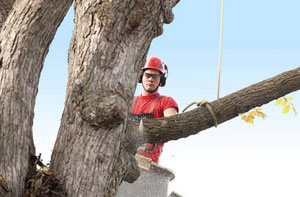
High Quality Finish - A further reason to count on a the services of an accredited Boston tree surgeon is the higher quality finish and look that results from their work. A trained specialist is able to complete a job with a much cleaner finish, and is thus more pleasing aesthetically. It can look quite unattractive when a tree is felled in an inconsiderate way, especially if a large stump is left behind. Making sure that the whole stump is removed, or ensuring the trunk that remains is able to naturally decompose, a first-rate Boston tree surgeon will complete the process competently.
Wide Range of Services - As well as offering a service for felling the tree, the tree surgeon can also offer a host of extra services, which might relate to pruning branches that have been damaged by wind, removing dead trees and planting and fertilising new trees. They also give guidance and advice on the perfect locations to plant new trees, in areas that are less prone to disease, pests and other concerns, and where they can attract a sufficient amount of sunlight.
Tree surgery can be provided in Boston and also nearby in: Skirbeck, Haven Village, Anton's Gowt, Sibsey, Freiston, Kirton Holme, Frampton West, Swineshead, Wyberton Fen, Bicker Bar, Gipsey Bridge, Brothertoft, Old Leake, Wyberton, Butterwick, Cowbridge, Haltoft End, Kirton, Benington, Leverton, Fishtoft, Frampton, Frithville, and in these postcodes PE21 0LL, PE21 0DS, PE21 0SP, PE21 0LG, PE21 0BB, PE21 0LF, PE21 0AU, PE21 0DT, PE21 1DP, and PE21 0AE. Locally based Boston tree surgeons will likely have the telephone code 01205 and the postcode PE21.
If you require this kind of service it is definitely advisable to hire a reputable tree surgeon. Boston residents can benefit greatly from the skills and expertise offered by a seasoned professional.
Wood Chipping Boston

So as to process the large quantities of branches, tree limbs and vegetation that result from their work, the majority of Boston tree surgeons will make use of wood chipping machines. Subject to what equipment is being used, these powerful wood chipping systems can munch up as much as 40 tonnes of material per hour, although around five tons per hour can be processed by the smaller, more frequently used models.
Chipping down the tree branches in this way makes them much easier to transport and also generates a useful material that can be used for a number of purposes including, garden pathways, wood pulp, landscaping, weed prevention, woody mulch, ecosystem restoration, biomass solid fuel and mushroom cultivation.
The majority of Boston tree surgeons will be delighted to let you have the wood chips that are created during the tree work, if you have a good use that you want to put them to, otherwise they will normally dispose of them or use them on other projects. Tree surgeons are an excellent source for wood chips that you can use for various purposes throughout your garden, even if you don't need any tree surgery doing on your property in Boston. If you need a load of wood chips to be delivered then some tree surgeons will charge you a fee for this, others let you have them for free.
Well known brands of wood chipping equipment include Hyundai, Timberwolf, Crytec and Forest Master.
Dutch Elm Disease
A fungal disease which has killed off many millions of precious elm trees right through Great Britain over the last fifty years or so, Dutch Elm Disease (Ophiostoma novo-ulmi) is not quite the issue that it was previously. Unintentionally imported into the UK, by way of elm logs imported from Canada in the late Sixties, DED (Dutch Elm Disease) is caused by a fungus called Ophiostoma novo-ulmi which is spread by the elm bark beetle (especially the Scolytus genus).
After arriving, it spread rapidly through the movement of elm products such as mulching bark, saplings, crates, and logs with the bark still attached. Thought to have originated from Asia, Dutch Elm Disease did not just affect trees in Great Britain, but also ravaged the stocks of elms in continental Europe and North America.
The first signs of DED are:
- Clusters of leaves turning yellow and wilting.
- Twigs that turn into a "shepherd's crook" shape.
- New shoots that die back from the tips.
- Dark rings or spots in the cross-section of twigs.
It usually begins to show up in early summer.
The felling of dead, dying and infected trees, has essentially decimated the favourite habitat of the elm bark beetle, and in recent times the spread of Dutch Elm Disease has been slowed down. There is now a continuing project for propagating young trees which are resistant to Dutch Elm Disease.
If you have elms in your garden in Boston, and have suspicions that they may be affected by Dutch Elm Disease, get in touch with your neighbourhood tree surgeon for guidance, or put in a request for a diagnosis from the Tree Health Diagnostic and Advisory Service (THDAS).
Tree families affected: Ulmacae and Zelkova.
Vectors - beetles of the Scolytus family.
Cause - fungi Ophiostoma Novo-Ulmi and Ophiostoma Ulmi.
Protecting Shrubs and Trees in Winter
Whilst you might not think that the weather conditions in the United Kingdom are harsh enough to justify protecting your trees and shrubs, it might be advisable to take a second look at this. The winter season can in fact be a hard time for trees, shrubs and plants and even those that we generally think of as hardy will benefit from some additional protection during times of intense cold.
Although most of your trees will have already dropped their leaves come wintertime in Boston, it is storms and high winds that are the biggest concern, and despite the fact that they may offer less wind resistance, they might still be damaged. If you're concerned about a tree's condition, or it seems like it may fall to the ground, you should call in a tree surgeon to check it out and complete a risk assessment. You can also have problems with breaking branches due to heavy snowfall, therefore when weather like this is anticipated, keep your eyes open for potential damage. A good layer of mulch round the base of shrubs and trees (particularly recently planted ones), can help in keeping the roots frost-free and stopping them from becoming dehydrated.
Ash Dieback (Hymenoscyphus Fraxineus)
A chronic fungal disease of ash trees that was first reported in Great Britain in 2012, ash dieback is likely to decimate approximately 80% of the current ash trees. Following the devastation of Dutch Elm Disease, which killed Britain's elm trees, ash dieback is going to have an immense impact on our beloved countryside.
A lethal disease of trees of the Fraxinus genus, ash dieback has an especially devastating effect on the Fraxinus excelsior (common ash), British Fraxinus excelsior (common or European ash). Originating in Asia, the fungus which causes ash dieback is named Hymenoscyphus fraxineus (H. fraxineus).
Dispersed by spores that blow on the wind, which can travel for tens of miles, ash dieback (or chalara ash dieback) has now spread to most parts of the British Isles.
Ash dieback kills trees of any age and has the following symptoms:
- Dark patches on leaves during mid to late summer.
- Leaves and new shoots which are dying during the summer.
- New epicormic growth appearing from buds that were dormant previously.
- Wilting leaves that turn black in colour and drop early.
- The formation of diamond shaped lesions where branches connect to trunk.
Ash trees are able to fight the infection to a certain degree, but ultimately die from continual attacks. There's not yet any cure for chalara ash dieback, and because it is a disease which is airborne, no clear way to stop it spreading.
If you think that you have identified a tree suffering from ash dieback on your property in Boston, or someplace in the local community, you could report it to the "Tree Alert Service" provided by the Forestry Commission, although the disease is so widespread throughout Great Britain that they are only really interested in cases discovered in areas not affected previously. You can still however speak to a local tree surgeon, who will offer guidance about how to proceed.
(Tags: Ash Dieback Signs, Spotting Ash Dieback, Chalara Ash Dieback Boston).Dead-Wooding Boston
All competent tree surgeons in Boston will carry out the practice known as dead-wooding, which is a necessary part of tree care and management. Calling for the careful removal or dead and dying branches which could pose a threat to vehicles, homes or pedestrians, dead-wooding can make a tree both safer and healthier. A tree's branches can die due to a number of different reasons, the most commonplace being a lack of light, pest attacks, damaged roots or disease.
While the purpose of safety is the usual reason for removing dead branches, the procedure can also be done for aesthetic reasons and for the overall benefit of the tree itself. An excessive amount of damaged, dying and dead branches can attract insect infestations and the spread of disease, so the removal of these compromised branches can dramatically improve a tree's health. You can also make a tree look more attractive through this procedure, as trees with lots of dead wood can also look rather ugly.
As smaller dead branches present little risk, only the largest ones will be cut out in most cases. Then again, any dead limbs that are more than fifty millimetres in diameter might need to be removed in areas where a tree hangs over a home, a park, a public space, a garden or a highway in Boston.
Tree Removal Boston
It's sometimes necessary to remove a tree when it becomes unsafe, diseased, or outgrows its location. Trees are vital for our environment, but they can sometimes pose risks to nearby properties or people. Overhanging branches, root damage, or the risk of a tree falling can make removal the safest choice. It's not an easy decision, but when required, it can enhance the safety and usability of your outdoor space in Boston, providing peace of mind.

You might think that the process of taking down a tree is straightforward, but that's not really the case, particularly for larger trees. It takes meticulous planning and suitable equipment to get it done safely and effectively. Professional tree surgeons possess the skills necessary to assess the situation and figure out the best method for removal while minimising any impact on the surrounding landscape. They will also take care of disposing of the tree, which means one less thing for you to worry about. If you're considering tackling this on your own, it can be quite risky, so hiring a professional is usually the best decision for larger or more complicated jobs.
Once you've removed a tree, your outdoor space suddenly has so much more potential. The extra light can greatly benefit the plants nearby, and the area that's now available can be transformed into a patio, a driveway, or a lovely garden feature. Whether it's for safety reasons or simply to enhance the layout of your garden, removing a tree thoughtfully can significantly change your outdoor area in Boston, providing enjoyment for many years to come. (Tags: Tree Removal Boston).
Tree Transplanting Boston
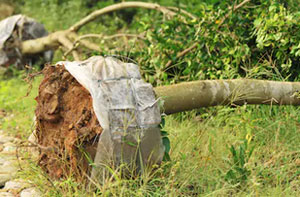
Removing mature trees and transplanting them in another location might sound challenging, but with powerful, modern lifting equipment and truck mounted spades, it's become a relatively simple task. Removing a tree from your land does not have to involve chopping it down and excavating the roots; a specialist tree removal company in Boston can remove and transplant even mature trees and repair the disturbed ground afterwards.
If you haven't any choice but to move a tree in Boston in the warmer summer seasons of summer and spring, you should lessen the stress of the process on the root system by comprehensively soaking the soil with water before any work begins. To raise a tree from the earth a tractor based mechanical tree spade is pushed down into the ground to surround the main root ball, before lifting the whole tree free. The uplifted tree can then be replanted or temporarily stored before its transplanting in its new home.
A specialist tree transplanting company in Boston will communicate with local authorities to ensure preservation orders and local regulations are complied with at all stages of the tree moving and transplantation procedure. It should be possible to obtain transplanting services in Skirbeck, Freiston, Cowbridge, Kirton Holme, Frampton West, Butterwick, Haven Village, Leverton, Wyberton Fen, Benington, Gipsey Bridge, Sibsey, Frampton, Fishtoft, Frithville, and in Boston.
Air-Spading Boston
There are a number of issues that could make the health of your trees a concern, but problems with the root system are quite often the cause. An experienced Boston tree surgeon may need to gain access to your tree's root system, to be able to check for issues such as root rot and soil compaction.
Due to the potential for root damage in the process of digging down, this was problematic previously. A system known as "air spading" is used by some up-to-date and "savvy" tree surgeons in Boston, and this allows compacted soil to be broken up and stripped away by means of compressed air, which doesn't cause any damage to the tree's root system or nearby utilities.
Sometimes, foot traffic, building work or passing vehicles can cause the soil around a tree's roots to get compacted, and this can adversely affect its health. When it doesn't get sufficient water and nutrients, a tree can quickly become "stressed", rendering it more vulnerable to attack by insects, pests and disease. Also a good technique for correcting root flare problems, air-spading can be used to successfully remove the soil from the base of a tree which has become covered in too much soil, increasing the possibility of root decay.
Directing air into the soil at speeds of up to 1,200 mph, the air-spading process necessitates the use of an air-spading tool and an air compressor which forces air into voids in the soil, causing it to break up instantly, but not damaging harming the tree roots or utilities. Immediate inspection can take place, as the flow of air blows away the soil from the roots. A much looser covering of wood mulch and fertiliser can then be applied to encourage the tree to rejuvenate, and a solution found for any obvious problems. (Tags: Air-Spade Boston, Air-Spade Investigations Boston, Air-Spading Boston).
Eco-Plugging Tree Stumps Boston
Stump grinding is the conventional method employed by most tree surgeons in Boston for removing large stumps. There is however a less costly alternative to this approach nowadays, which is known as "eco-plugging", and is growing in popularity. This technique is not only useful because it's cheaper, but also due to the fact that it can be used in awkward locations which are inaccessible to stump grinding machines.
An effective treatment for killing tree stumps, eco-plugging has no effect on the surrounding vegetation and trees. Eco-plugs eliminate a tree stump by killing off the whole root system, and can be utilised in all weather, and at any time of the year. Containing a type of crystalline glyphosate herbicide which is suitable for treating a wide array of tree species, eco-plugs give good results in 95-100 percent of cases. (Tags: Eco-Plugging Tree Stump Removal Boston, Eco-Plug Treatment Boston, Eco-Plugging Boston, Eco-Plugs Boston).
Tree Surgery Tasks Boston

Boston tree surgeons can generally help you with hedge lowering, tree dismantling Boston, crown thinning, tree waste removal, cut sealing, commercial tree surgery, arboriculture Boston, shrub maintenance, tree shaping, pollarding, vegetation management, hedge reduction Boston, root flare exposure, fruit tree pruning, root grinding in Boston, tree reduction, crown cleaning, stump removal, crown lifting, residential tree care in Boston, retrenchment pruning, dead wood removal, tree management, drop crotching, tree surveys, air spading, root decompaction, tree fertilising, tree maintenance, landscaping in Boston, woodland management, waste removal, tree pest control Boston, root pruning, damage restoration and other tree surgeon services in Boston, Lincolnshire. These are just an example of the tasks that are performed by local tree surgeons. Boston professionals will tell you about their entire range of services.
Obtaining Information and Guidance
To make certain you employ a tree surgeon who's both up to the job and who will not inflict irreparable damage on your precious trees, there are a number of specific questions you need to ask when searching for a tree surgeon in Boston. Suitable questions should be along the lines of: Will you give me a written quotation? Do you have public liability and employers insurance? Do you and your employees have the proper qualifications and certifications (for chainsaw use and tree management)? Are you a registered member of a professional association (i.e. The Arboricultural Association or the International Society of Arboriculture)? Does your work follow the British Standard? Can you produce references from former clients? You really should continue looking for a tree surgeon if you don't receive satisfactory replies to any or all of these simple questions.

To find an abundance of helpful info concerning how to pick a decent tree surgeon, combined with a comprehensive directory of experienced tree surgeons in the UK, you should visit the Arboricultural Association site. The International Society of Arboriculture (ISA) is another good resource which includes a "verify tree surgeon credentials" tool and a "find a tree surgeon" tool. You are also able to find a lot of facts about tree surgery as a profession by going to the trusty Wikipedia "Arborist" article here. A Government financed organisation where you can also find reliable tradespeople such as tree surgeons, comes in the shape of Trustmark. Concentrating on good trading practices, excellent customer service and technical competence, Trustmark provides a level playing field for assurance and quality.
Tree Surgery Apprenticeships - Training - Courses Boston

For anyone who loves the outdoor life, having a job in a profession like tree surgery can be extremely rewarding and fulfilling. Opportunities like starting at the bottom (as a groundworker) and working towards this goal, registering for a private course, taking a course in university, applying for a college course or being accepted into a tree surgery apprenticeship are available to anyone in Boston who are hungry to be a tree surgeon. For young people, tree surgery apprenticeships in Boston (when on offer), can be applied for whilst they are still at school. Private courses and college courses are available all over the UK and are open to people of any age. Students with the right qualifications (usually one to three "A" levels) can shoot for higher national diplomas, degrees and foundation degrees at university, in any of the various related fields such as forestry, forest management, woodland conservation & ecology, arboriculture and countryside management. Last but not least, you may be able to gain a bit of tree management experience by volunteering for the Woodland Trust, the Forestry Commission, the National Trust or the Tree Council, all of who regularly have placements available. If you came here looking for info on "how to become a tree surgeon in Boston", with a bit of luck this brief article has proved valuable. The National Careers Service website is the spot to head to view a lot more guidance on ways to become a tree surgeon.
Tree Surgeons Near Boston
Also find: Kirton Holme tree surgeons, Haven Village tree surgeons, Freiston tree surgeons, Wyberton tree surgeons, Skirbeck tree surgeons, Leverton tree surgeons, Anton's Gowt tree surgeons, Frithville tree surgeons, Fishtoft tree surgeons, Gipsey Bridge tree surgeons, Sibsey tree surgeons, Wyberton Fen tree surgeons, Haltoft End tree surgeons, Cowbridge tree surgeons, Bicker Bar tree surgeons, Benington tree surgeons, Frampton tree surgeons, Butterwick tree surgeons, Old Leake tree surgeons, Frampton West tree surgeons, Kirton tree surgeons, Swineshead tree surgeons, Brothertoft tree surgeons and more. All these towns and villages are catered for by certified tree surgeons. Local homeowners can obtain quotes by clicking here.
Tree Care Services Boston
- Boston Tree Planning
- Boston Hedge Reduction
- Boston Air-Spading
- Boston Tree Cutting
- Boston Stump Removal
- Boston Tree Transplanting
- Boston Root Decompaction
- Boston Tree Inspections
- Boston Crown Lifting
- Boston Crown Raising
- Boston Tree Watering
- Boston Tree Pruning
- Boston Tree Bracing
- Boston Wood Chipping
More Boston Trades: Undoubtedly, whenever you're having tree surgery done in Boston, Lincolnshire, you will likely need other garden related services, and aside from a tree surgeon in Boston, Lincolnshire, you might additionally need driveways in Boston, artificial grass installers in Boston, SKIP HIRE in Boston, soil drainage services in Boston, landscaping in Boston, lawn mowing in Boston, garden pond installation in Boston, patio installers in Boston, garden shed builders in Boston, garden rubbish removal in Boston, fence fitters in Boston, hedge shaping in Boston, garden clearance in Boston, garden designers in Boston, decking fitters in Boston, weeding services in Boston, and other different Boston tradespeople.
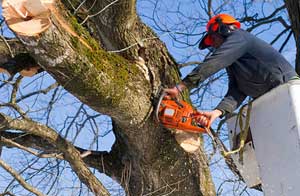 Tree Surgeon Boston
Tree Surgeon Boston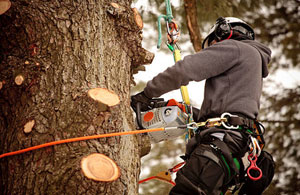 Tree Surgeons Boston
Tree Surgeons Boston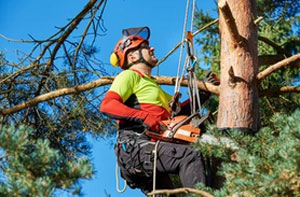 Tree Surgery Boston
Tree Surgery BostonIf you want local info on Boston, Lincolnshire take a look here
More: Woodland Management, Air-Spading, Vegetation Management, Tree Cutting, Tree Watering, Tree Removal, Crown Thinning, Arboriculture, Crown Lifting, Woodland Clearances, Tree Cutting, Tree Watering, Air-Spading, Soil Terraventing, Crown Removal, Tree Inspections, Tree Watering, Tree Felling, Shrub Maintenance, Tree Lopping, Wood Chipping, Tree Felling, Hedge Cutting, Cable Bracing, Crown Cleaning, Woodland Clearances, Tree Removal, Tree Cutting, Root Removal, Tree Removal.
Tree Surgeon Jobs Boston: Find Boston tree surgeon jobs here: Boston Tree Surgeon Jobs
Tree Surgery PE21 area, and dialling code 01205.
(Sourced from tree surgeons Boston text version five.)
Tree Management Boston - Stump Removal Boston - Crown Lifting Boston - Arboriculturalist Boston - 01205 - Woodland Management Boston - Tree Surgery Boston - Tree Felling Boston - Vegetation Management Lincolnshire




